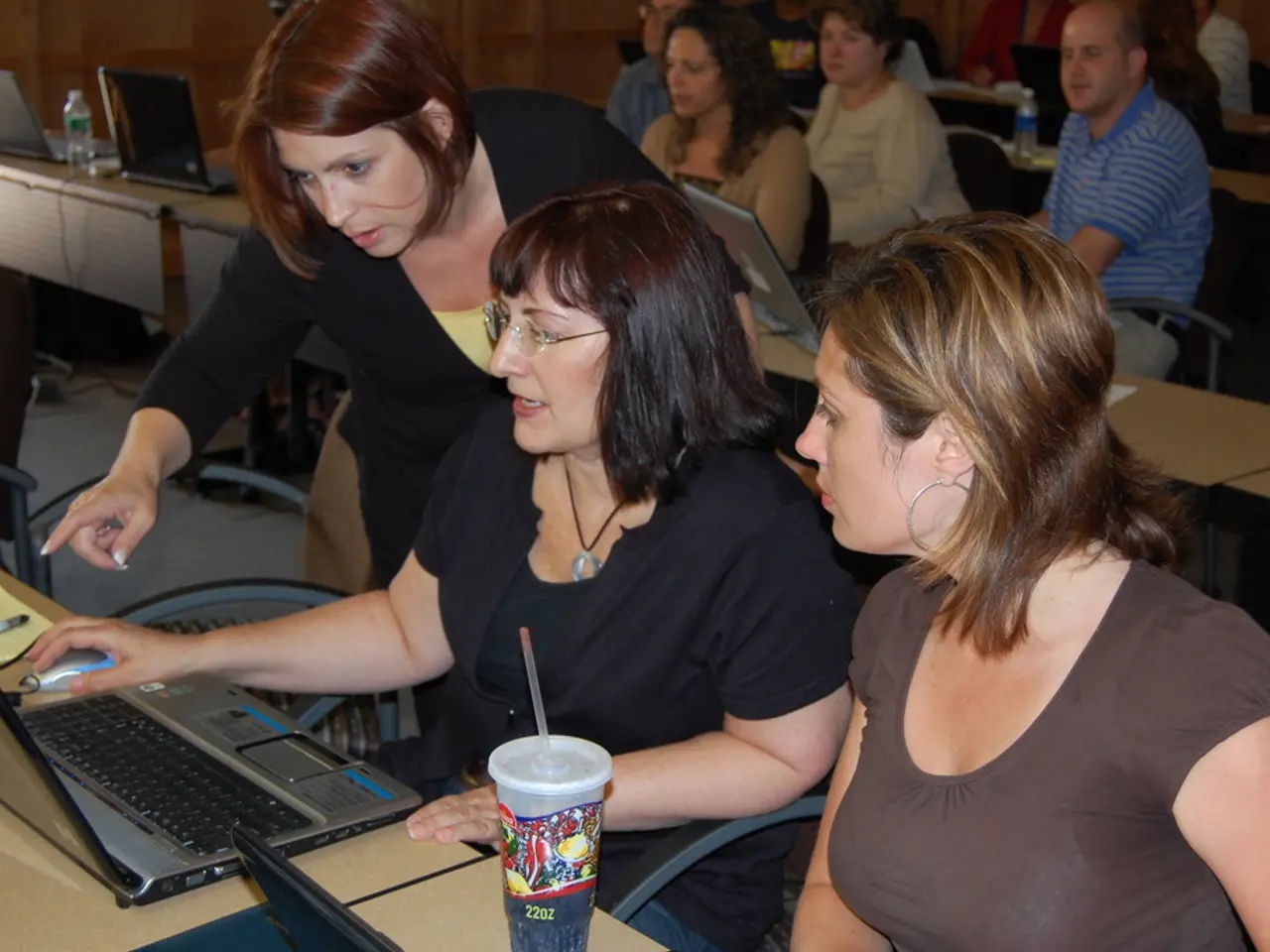Online gaming and web surfing dependency in Germany - Traditional amusements losing ground
In a revealing study by the Foundation for Future Issues in Hamburg, the "Leisure Monitor 2025" has shed light on the ways Germans can boost their leisure satisfaction. The study suggests that finding a better balance between online and offline activities is crucial for increased leisure satisfaction.
According to the report, two-thirds of respondents regularly engage in offline activities such as talking about important things, spending time with a partner, drinking coffee and eating cake, or simply being lazy. This is in contrast to their frequent online activities like watching TV, listening to music, using a tablet, PC, or laptop, and using a smartphone for playing, surfing, or chatting, which are enjoyed by 83% and 79% of respondents respectively.
The study further reveals that more than half of Germans are physically active at least once a week (51 percent), indicating a renaissance in sports. Spontaneous activities like "sleeping in" and going out with friends are popular, with rates of 68 percent each.
Ulrich Reinhardt, the study's scientific director, emphasised that leisure satisfaction increases when individuals successfully balance online and offline engagement, active and passive leisure activities, and individual and social/community experiences. He added that the internet is used extensively in all phases of life and is the number one source for distraction and entertainment.
Interestingly, the study found that women and older people are better at maintaining this balance, thus experiencing more positive and emotionally fulfilling leisure time. Improving this balance, in general, would lead to greater overall leisure satisfaction for German citizens.
Reading a book remains a regular activity for about a third of respondents, while physical intimacy, including eroticism and sex, is enjoyed by 70 percent of respondents. Shared activities with children and hobbies are also enjoyed by a significant number of respondents.
The study also reported that Germany has about 4% of "offliners," slightly below the EU average of 5%. Remarkably, the Federal Statistical Office reports that about 4% of 16- to 74-year-olds in Germany had never been online in 2024, which is about 2.8 million people.
In essence, taking intentional time to reduce online distractions and actively engage in meaningful offline interactions, social activities, and physical movement is key to increasing leisure satisfaction in Germany, according to the Leisure Monitor 2025.
- German citizens can boost their leisure satisfaction by balancing their engagement in fashion-and-beauty trends, food-and-drink experiences, home-and-garden projects, and relationships with their frequent online activities such as watching TV or using smartphones for social media.
- Ulrich Reinhardt, the study's scientific director, suggests that greater leisure satisfaction can be achieved when there's a balanced approach to offline activities like spending time with pets and travel, and online activities like shopping or reading about them.
- As per the report, the balance between online and offline activities also extends to hobbies, with more people participating in offline activities like reading a book compared to those shopping for new books online.
- The study revealed that both men and women enjoy physical intimacy and sex, but women and older people seem to maintain a better balance between their online and offline leisure activities, leading to more emotionally fulfilling experiences.
- Interestingly, while the internet is the number one source for distraction and entertainment, the study found that about 4% of Germans are "offliners," slightly below the EU average, indicating that some citizens prefer to engage in offline activities like petting their pets or gardening instead.





